Disclosure: Some of the links you’ll encounter are affiliate links. If you click and buy something, I’ll get a commission. If you’re reading a review of some precious metals company, please understand that some of the links are affiliate links that help me pay my bills and write about what I love with no extra cost to you. Thank you!
Yeah, I think I know:
You probably heard that Google hates affiliate websites and that they shell out penalties left and right for them.
Or you might have heard that if you host an affiliate link anywhere on your site, you will NEVER rank, except for squat, and the only organic visitors you’ll be getting will be the chirping crickets, desperate to get out.
You might have heard some other crap I don’t know of, but I do know all of that is BULLSHIT!
Sorry for swearing but it’s the truth and this article explains exactly why.
Ready to learn?
Table of Contents
What Does Google Really Want?
Google wants the best Search experience possible, they want it pristine in fact.
Why?
Because that’s how they make their money. Google and their parent company Alphabet make the majority of their cash from ads displayed in Google Search.
So. they make a huge chunk of their profits from Google Search and they’d do everything to keep it as spotless as possible.
That’s why, when you’re done reading this article if someone asks you “hey I’ve heard Google despises affiliate sites, is that true?
You tell them it depends.
It depends on what you do and what you DO NOT do.
Let me quickly explain.
What Google Wants You to Do (The Google Likes Affiliate Sites Scenario)
#1- Choose One Niche; And One Niche Only!
When you start your online biz, it’s very important to pick one niche and then stick to it like superglue.
Why?
Because Google likes to rank sites by relevancy and if you’re relevant to one and one niche only, (even if it is broad)-you will rank much better.
On the other hand, multi-niche sites have it much more difficult, because they’re usually not relevant to anything in particular, so Google finds it hard to fit them into a category.
This is bad news… for those sites, because when Google doesn’t know where to rank you-they don’t.
An your competitors profit.
Simple as that.
#2- Write Keyword-Optimized Content
This advice ties in with the first one. Choose an evergreen niche, and then create articles that are keyword optimized with keywords from that niche.
This is important because Google is trying to give THE BEST answer to its users, for any and all queries, so when you pick and write an article about one query you become a ranking candidate for that phrase…
Of course, whether you’ll rank or not depends on a myriad of factors but you MUST be relevant to even be considered.
#3- Match Search Intent
I just got done talking how you need to produce (write) keyword-optimized content.
That’s true, sort of. In fact, what content you produce depends on the search intent behind the query typed into Google.
And it’s really easy to see what it is. Just hit the SERP’s and find out.
For example:
I promote SEMrush and when folks search for “SEMrush free trial” they are looking for a detailed guide that’ll show them how to try SEMrush for free.
How do I know that?
Google is showing me!
The first page is chock-full with them:
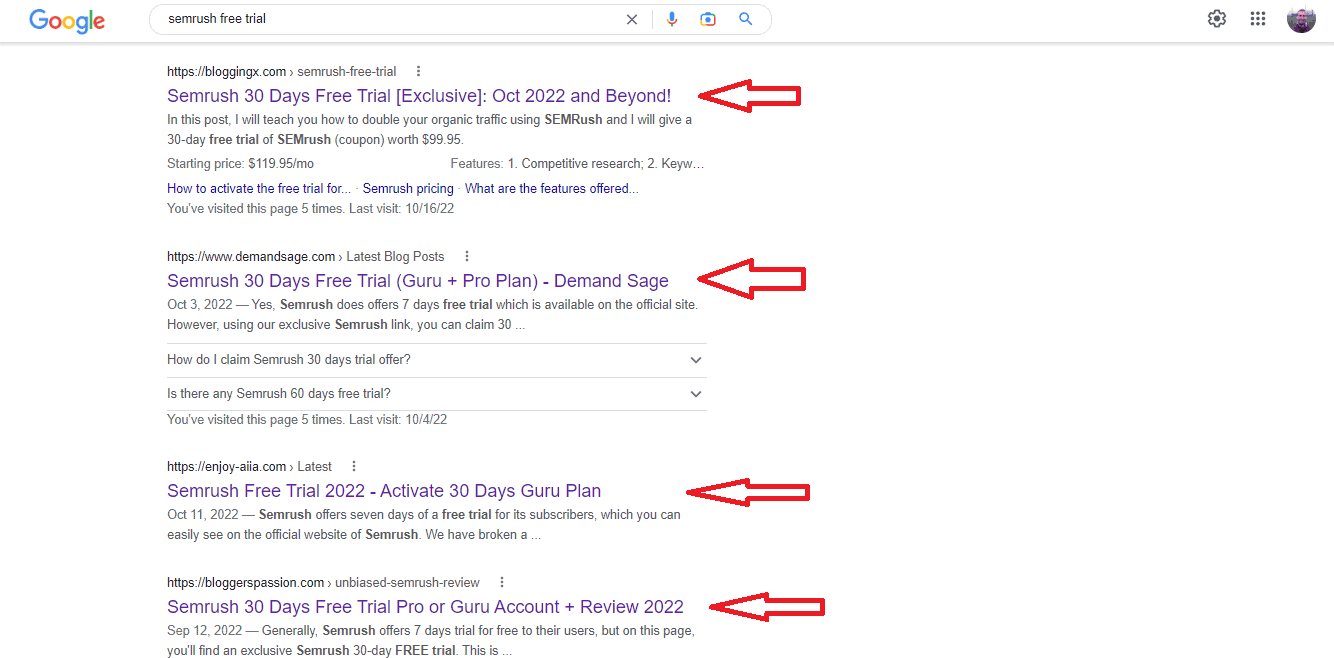
Note: I mentioned SEMrush a couple of times already, and if you don’t know what that is, it’s nigh-time to learn. SEMrush is one of the best all-in-one marketing platforms in the world. It’s a suite of 55+ marketing tools that can help you do holistic marketing for your online business.
So, if you are a newbie and you want to rank your affiliate site in Google, then make sure you read up on SEMrush as owning this tool can make the job so easier.
Start by reading my SEMrush pricing plans guide, and then learn how to get a lifetime deal on SEMrush here. Finally, conclude by reading my SEMrush coupon guide here.
On the other hand when people search for “how to tie a tie” there are a bunch of videos in the wild. That’s because you can learn to tie a tie by looking at someone do it.
So just be aware that search intent often means different content types and getting it right is a must or Google will simply never show your listing.
#4- Become a Niche Authority
Being a niche authority simply means you need to write a bunch of articles around your niche/topic.
Gone are the days when you could rank a 1-page website; or a 5 page website where each article is 500 words “thorough”. Today Google wants to see you’re a niche authority before they send you some of their traffic.
Now, this doesn’t mean that you need thousands or even hundreds of articles.
No, the number is more like dozens and sometimes much less.
For example, Google considers me an authority on SEMrush, and I only have 30 total articles on the topic. This sounds like it’s a lot, but SEMrush run a lucrative affiliate program and they’re my main money maker.
#5- Build a Brand
Building a brand simply means getting your name and your business out there.
This means you got to be active on Social media.
As a bare minimum, I suggest you be active on:
Remember, being active means posting regularly and keeping these accounts alive.
These are brand signals for you and brand signals are huge for SEO now.
#6- Build White Hat Links
Technically, Google is against any link building. They want you to write great content which naturally attracts links over time.
However, that’s Google’s utopia that’ll never come to pass.
We live in the real world so we have to build our links. But there’s the right and the wrong way to build them.
The right way(s) are things like:
- niche edits
- broken link building
- guest posting
- link roundups
- interviews
- expert roundups
- etc.
Basically, a “good” backlink is any link where it depends on the good will of the other webmaster to give it to you, and where you haven’t paid anything for it;
And what is bad link building?
Continue reading to learn about it 🙂
What Google Doesn’t Want You to Do (Google Hates Affiliate Websites Scenario)
#1- Having a Plural Niche Website
Having a multi-niche website is just making things harder on yourself. It’ll take Google forever to figure out where you come from and where you belong; and even when they do, you’ll always be less relevant than pure niche sites.
Also, you’ll need to build up huge link authority to make up for your lack of relevance and topical authority.
So multi niche sites can be successful, but are definitely not for newbies. And also, if you’re adamant about having a multi niche blog, then I recommend you start off with one niche first, and then expand from there.
Because you can’t start where you’ll finish!
Wise words, no?
#2- Writing wily-nilly Instead of Keyword Optimized Content
Google wants you to target keywords with your content so they can show you to their users. They don’t want you to write off the cuff too much because they have to index it, and remember indexing costs them:
- bandwidth,
- crawl budget; and most importantly,
- real $$$
And with the web growing faster and faster it’ll be even more important to target keywords, lest the more selective Google chooses not to index your new content at all.
Yes, that can happen.
Note: you can use SEMrush Keyword Magic to find easy, long tail keywords to rank for. SEMrush is above all a keyword research tool and Keyword Magic is the best feature of SEMrush by far.
#3- Too Much Thin Content
Thin content is anything that doesn’t provide real value to the end user. It could be anything from duplicate content, to poorly written fluffy stuff, to not enough content on the page to make it useful to anybody.
Thin content as related to affiliate sites often happens when webmasters make their first sale ever, and happy and addicted to that unforgettable adrenaline rush, they stat pumping out more and more low quality pages and then bulking them up, with, you guessed it, affiliate links.
But of course this can’t pass as searchers go to Google to find answers and not to click on affiliate links. So they leave the site disgusted and Google punishes accordingly.
#4- Crappy UX
UX stands for User Experience and you must get it right. So crucial it is that if your site’s UX is horrendous, then even the best SEO in the world won’t stop you falling through the SERP’s and off the first page.
Google doesn’t want to show bad sites to its users, PERIOD!
What makes a bad site and bad UX?
Things like:
- too many ads
- not being mobile friendly
- Obtrusive popups (especially on mobile)
- slow loading website
- barley readable font
- Non-loading images
- confusing menu
This is just basic, common sense stuff; the things that make you cringe when you see them on other people’s blogs. So make yours different! Make it better and get that UX right starting today.
Because
Google doesn’t want to show bad sites to its users!
#5- Not Having Obligatory Pages
Obligatory pages are those that make you a legitimate web business.
Pages like:
- Home
- About me
- Contact
- Privacy policy
- Affiliate disclaimer
These pages are a bore to set up, but are insanely important for your business, as Google treats them as trust signals.
#6- Not Having HTTPS
If you want to rank your site in search, then you need to serve it over secure connection. That way Google knows it’s dealing with a legitimate business; and also, that green padlock right next to your domain name signifies trust.
Your visitor are more savvy than you think and these “little things” actually matter a lot.
#7- Doing black hat SEO
Black hat SEO encompasses anything that goes against Google webmaster guidelines.
Here’s the incomplete list of things not to do:
- Spamming people (especially via automated blog comments)
- buying followed links
- injecting links
- DDOS attacks
- Negative SEO
- PBN’s
These are all link related, but there’s also on-page spamming to look out for.
The top “techniques” are:
- keyword stuffing
- keyword blending
- article spinning
- cloaking
These largely don’t work for SEO anymore, but they do wonders for making Google hate your blog.
Ranking an Affiliate Site in Google (Mini FAQ)
a) Can You Get Penalized for Having too Many Affiliate Links?
Apparently… yes!
Spencer Haws once got his niche site penalized. It was when he made a comparison page for different knives and he had 50 different knives facing off against each other.
And each knife was served with two affiliate links, one normal and the other embedded within the image.
So the page had 100 affiliate links.
Google saw that and they obviously thought he had too many because he got hit, hard.
How do I know that?
Because one day, he fell from position #1 to position 237 and Spencer knew it was because of affiliate links because, once he removed the links his ranking returned in a day.
Obviously, this was some kind of logarithmic penalty because of it bouncing back so fast.
Now,
it should be noted this happened several years ago and maybe things are different now.
I recently saw a page with 250 affiliate links and 5 000 words of content
the UX is horrible but the guy is ranking number #1,
go figure!
In fact here it is, and a true example of a horrible UX! I counted 10 affiliate links in that small parchment of text.!
b) Should You Nofollow Affiliate Links?
Yes, you should. It’s in the guidelines and Google is adamant that affiliate links are payed links and as such need the no-follow tag.
If you don’t no follow affiliate links you run the risk of suffering an algorithmic or manual penalty. That’s because Google knows what links on your site point to your affiliate merchant and they could think you’re selling those links.
Better safe than sorry!
But
c) Are Affiliate Links Bad For My SEO?
No. If you mark them with a nofollow tag, you have nothing to worry about. However there is a question of Page Rank dilution. PR flows through all links and each affiliate link you add takes some of that authority from your page.
In other words- add too many and you page will struggle to rank.
So it’s best to add affiliate links where it makes sense and where they provide value to the user.
d) Does Google Have an Affiliate Program?
No they don’t. Google is a search engine that monetizes through paid add placement. Their “affiliates” are honest webmasters who populate the web with awesome content Google can parse and show to its users.
So Google could not survive without us;
think about it 😎
e) Can I Use Both Adsense and Affiliate Links on My Site?
Yes you can. In the beginning stages of a website growth it’s better to focus on just one monetization method. To sort off get a feel for the niche and see what’s working and what’s not. Then once you know that, expand! Monetize!
Having several diverse sources of income is never a bad thing.
f) What is The Best Affiliate Marketing Program?
The best affiliate marketing program? It doesn’t exist. Also, what’s best for me I mainly promote Wealthy Affiliate at the moment might be horrible for you if our sites are in totally different niches.
So there is no best; but there are good and bad affiliate programs.
Avoid those merchants that:
- Don’t pay their affiliate
- Have bad reviews galore
- Who’s product is crap (why would you even consider promoting it?)
- Who’s product you don’t own or like
Go for the programs that:
- Are regular with payments
- Have awesome reviews
- Have great products
- Are transparent with their business
- Are helpful to their affiliates
For example, a good example of an excellent affiliate program is the Augusta Precious Metals affiliate program.
Augusta Precious Metals is a gold IRA investment company that sells physical gold and silver to American savers and investors.
They also help people from the US open gold IRA accounts to diversify their retirement portfolios.
Bottom line is that you can earn a ton of money as an affiliate for Augusta Precious Metals. The commissions are 10%, the minimum purchase is $ 50,000 and you get 10% of that sale.
If you want to learn more about Augusta Precious Metals you can read my review of Augusta Precious Metals next.
Conclusion- Does Google really hates Affiliate sites?
Whether Google loves or hates your affiliate site is totally up to you.
And that is good news.
Contribute to the web in a genuine way and you’ll be rolling in traffic so much you won’t know what to do with it.
Try to trick Google, that’s is much smarter that you by the way, and you’re screwed.
Hey, I opened this article with a curse word and I closed with it
At least I’m consistent, eh? 😀
Leave me a comment below,
thanks:)
Nikola Roza
Nikola Roza is a blogger behind Nikola Roza- SEO for the Poor and Determined. He writes for bloggers who don't have huge marketing budget but still want to succeed. Nikola is passionate about precious metals IRAs and how to invest in gold and silver for a safer financial future. Learn about Nikola here.

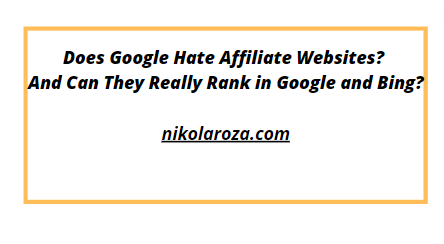
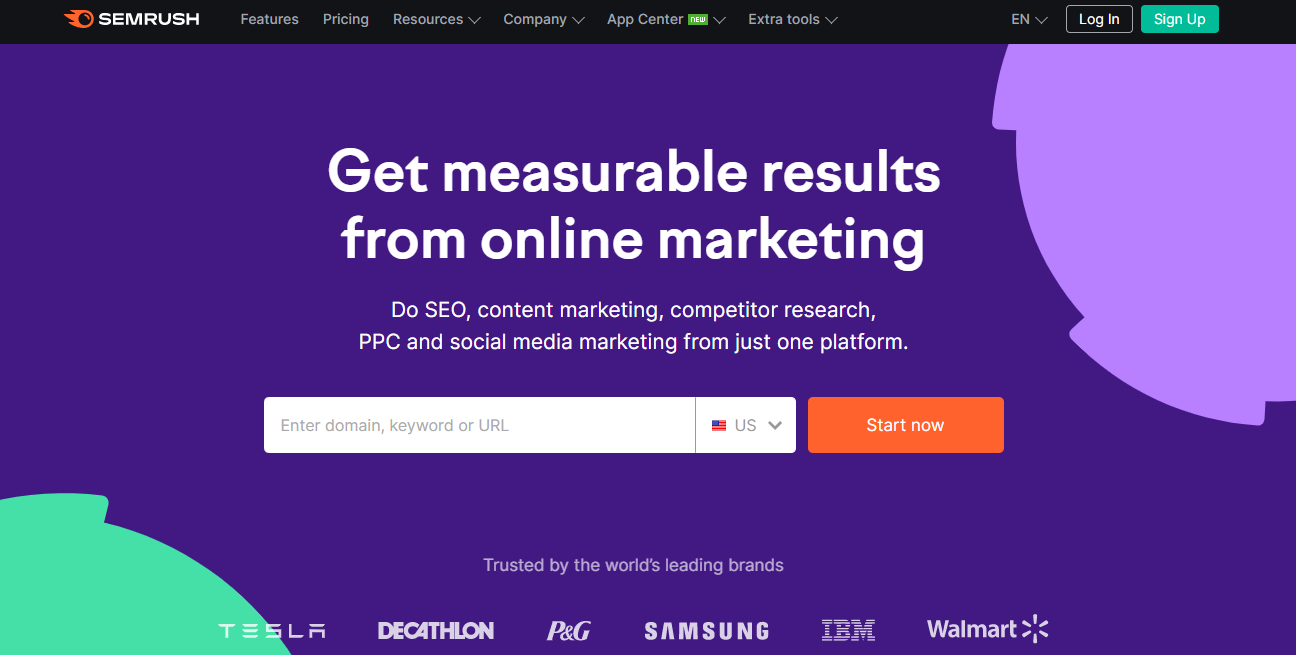
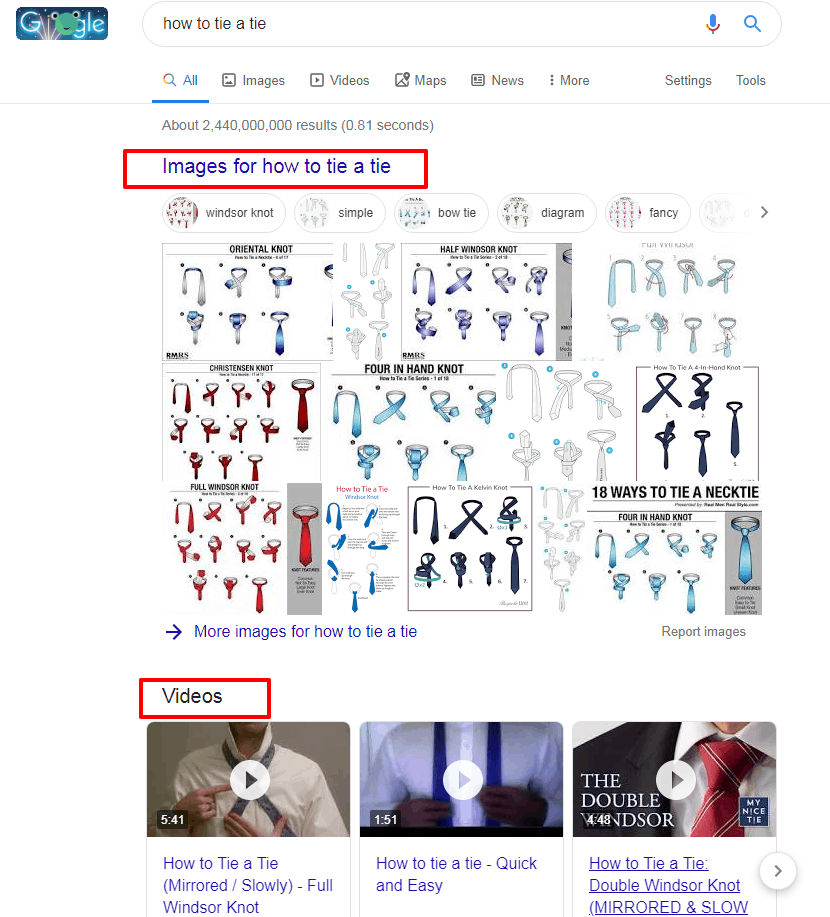
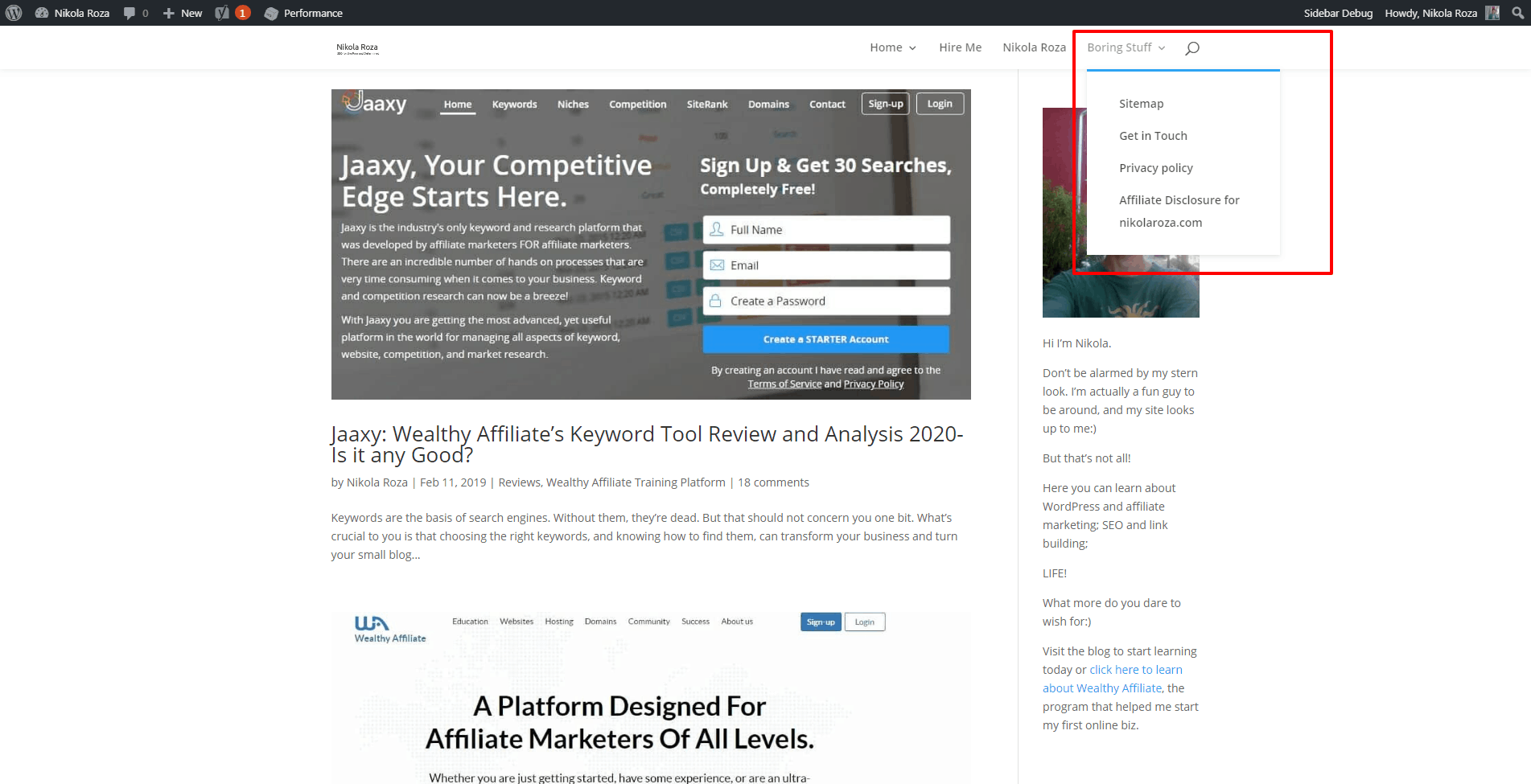
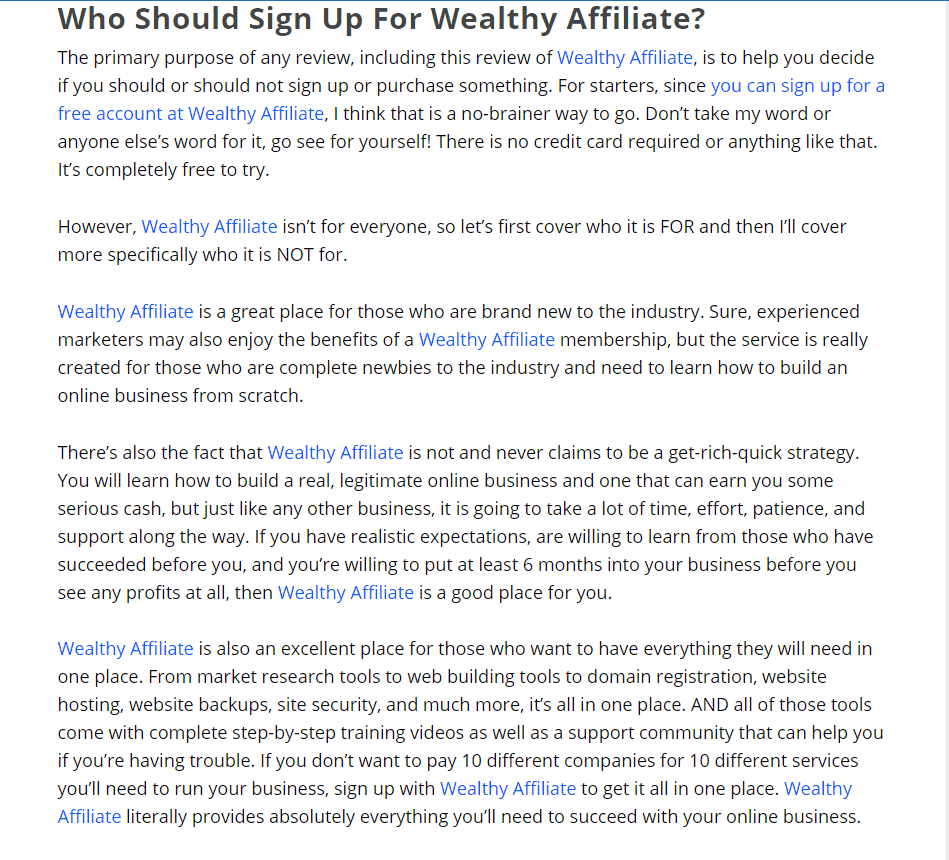
I learned a lot from this, Does Google hate Affiliate links? Based on my little experience choosing the most appropriate and useful products for your blog audience is one of the best.
Then it’s better to place those links in the right place without disrupting users or bot.
It’s only then you can go away with affiliate links on your site.
This is so informative, I find this helpful.
Hi Samuel, thanks for sharing your experience with us.
No Google does not hate affiliate links or sites. In fact, if they provide useful helpful content, Google loves them!